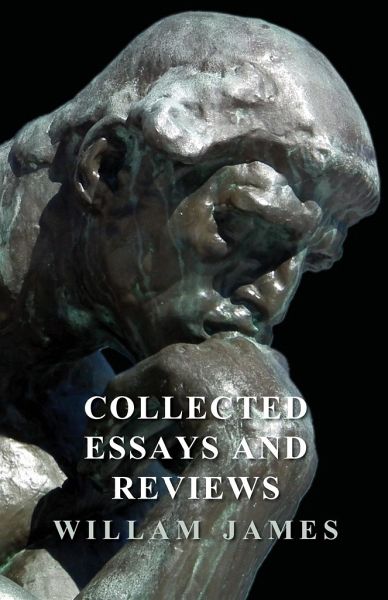
Collected Essays and Reviews
Versandkostenfrei!
Versandfertig in 1-2 Wochen
29,99 €
inkl. MwSt.
Weitere Ausgaben:

PAYBACK Punkte
15 °P sammeln!
This antiquarian book contains a large collection of articles and reviews written by William James. There are few intellectual histories in which quick enthusiasm and love of novelty are so perfectly balanced by steadiness and discipline. Bringing together thirty-nine of the most important of his work, this compendium is a one of a kind, and constitutes a must-have for those with an interest in the life and work of this seminal philosopher. Contents include: "German Pessimism", "The Sentiment of Rationality", "The Feeling of Effort¿, ¿What is an Emotion?", "The Religious Aspect of Philosophy...
This antiquarian book contains a large collection of articles and reviews written by William James. There are few intellectual histories in which quick enthusiasm and love of novelty are so perfectly balanced by steadiness and discipline. Bringing together thirty-nine of the most important of his work, this compendium is a one of a kind, and constitutes a must-have for those with an interest in the life and work of this seminal philosopher. Contents include: "German Pessimism", "The Sentiment of Rationality", "The Feeling of Effort¿, ¿What is an Emotion?", "The Religious Aspect of Philosophy", and more. William James (1842 ¿ 1910) was an American philosopher and psychologist. This vintage book was first published in 1920, and is being republished now in an affordable, modern edition. It comes complete with a specially commissioned new biography of the author.














